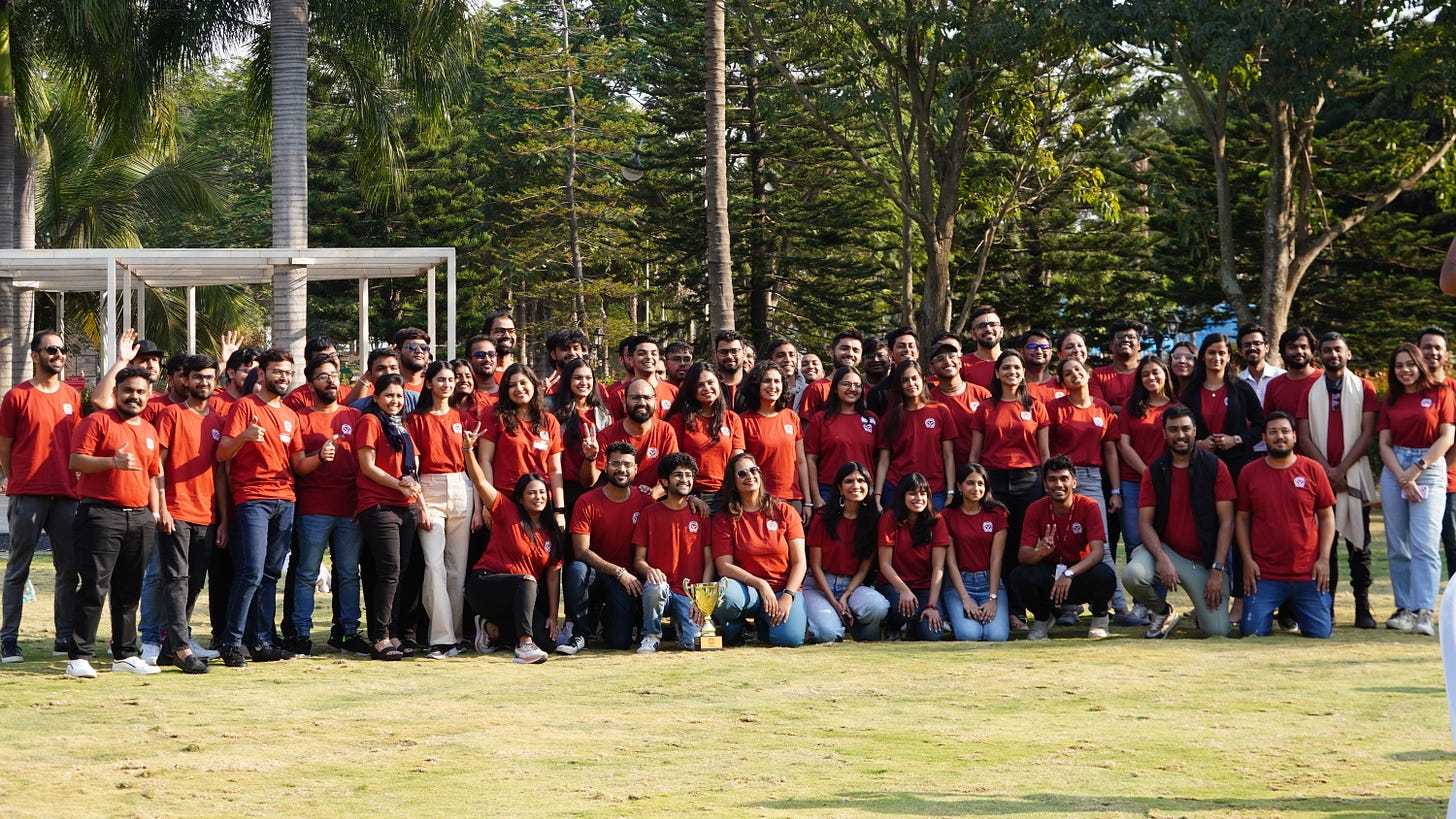Stoa Digest #110: 🫶🏼 Leading With Empathy 🫶🏼
One of the greatest secrets of success.
Hey there Stoans,
I have had many people come and talk to me about having ‘empathy’ while communicating. But what does that really mean???
So I pondered this for a while and I have a few observations minus the common buzzwords or fluff you might’ve heard.
Imagine this: You have a project deadline. You and your teammates are busy at work. They know you as the excel-pro. Anytime it comes to Excel, they give you the work.
However, two days before the deadline, you get a call and find out, your mother is ill. This leaves you distraught and stressed. You’re already stressed about your project deadline, and you don’t want to let your teammates down as the “excel-pro”.
But you know, you are not going to be able to deliver your best work, with the anxiety and stress about your mother weighing on your mind.
So what do you do?
Do you drop a text that says: “Hey folks, my mother is unwell and I cannot meet the deadline, I’m sorry.” - This seems like the default thing to do. Direct and clear.
What's wrong with the message above? While it conveys the basic premise, it does nothing to communicate to your team members about how it has affected your emotional state. Neither does it convey what you are actually enduring and how it's affecting your work nor does it convey, what they should do without you.
This is where you over-communicate, in a way that shows empathy to your team (I’m really sorry that I’m not able to handle working on the Excel by myself, I know it will be an extra burden on the team without me being able to give a 100%) and allows your team to empathise with you. (My mother has fallen ill, and the anxiety and stress around it is really affecting my focus on the project)
Now, let’s think of this in a different way, shall we? 🤔
Let's go back to working in teams again. You begin working on a project together.
Usually, if everyone is on the same level, you jump straight to sharing your approach, ideas, and solutions to the problem. You want to highlight your perspective, and very rightly so as you are someone who is action-oriented and wants to get work done.
Right when you’re about to deliver a crucial line, like Rajinikanth before he takes on a multitude of bad guys, someone interrupts you to share a different perspective.
And in that instant, the thought of cutting them off crosses your mind in a flash, but you hold back because we are civilised people.
But also consider that sometimes you might be wrong while others are right.
What they say at the moment might throw you off, but how do you disagree without coming across as an asshole?
Well, the answer here is, understanding where they’re coming from. Ask them ‘why’ questions, and patiently hear out the origins of their answer. Once you have that context, you are in a position to challenge or disagree.
But that shouldn’t be your takeaway from this, sure you might be right/wrong in the short term, but what you will master is being an effective collaborator.
Protip: Use the “yes and…” or the “yes, but…” framework for healthy disagreements.
This is just the tip of the iceberg in how you can bring more empathy into your workplace and team conversations, changing the game one interaction at a time.
Now, the next time someone says "empathy", you will know what it means. 💡
~ Shelton, Team Stoa
🫡 People of Stoa 🫡
Check out this new drop on our YouTube channel featuring the community sharing their thoughts on an important skill you should have in your 20’s 💸
🐝 Community Buzz 🐝
The last weekend saw C11 complete their 6-month program journey with an eventful and super fun celebratory night! It’s been an absolute roller coaster of a ride. 🎢
⏯ For Stoans by Stoans ⏯
A good way to judge and understand whether the advice you receive is useful or not.
An interesting read on effective roles that shape communities.
Here’s a cool app that shows a user how to use a product.
A great watch on taking risks and whole-heartedly doing things with respect.
The Rameshwaram Story! How this cafe turned into a 4.5 crore business.
ciao, mi familia!

